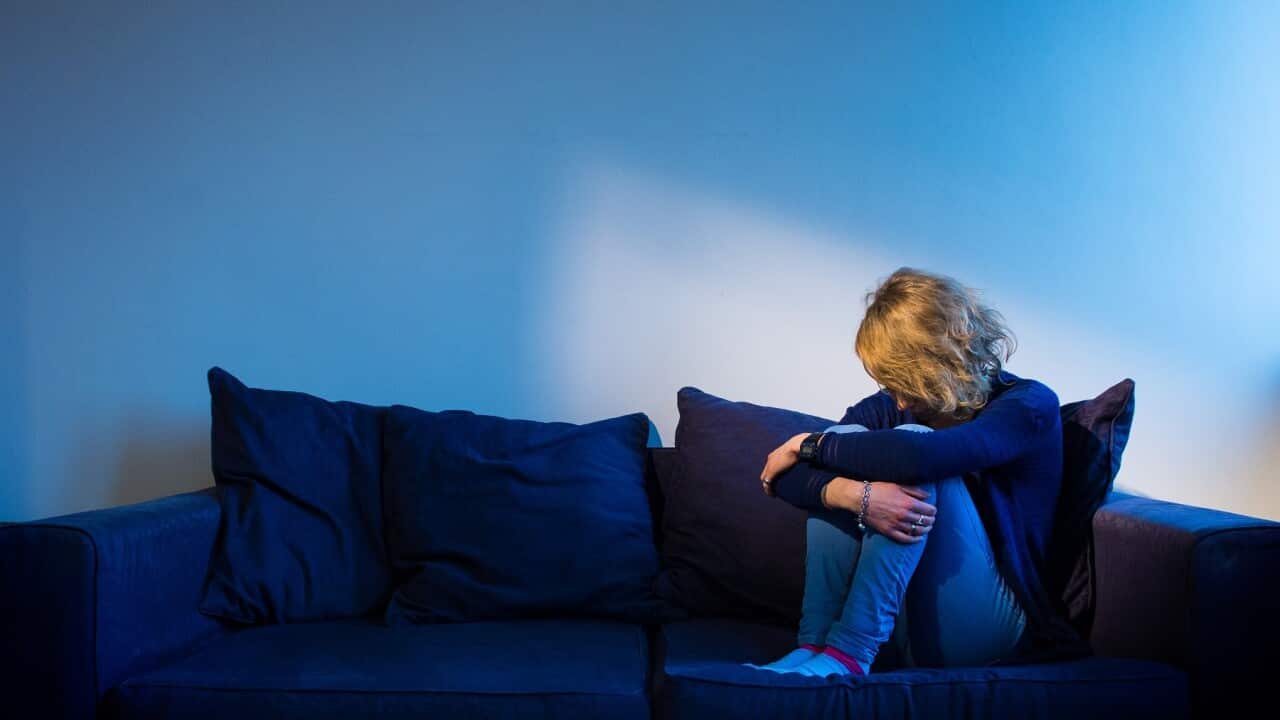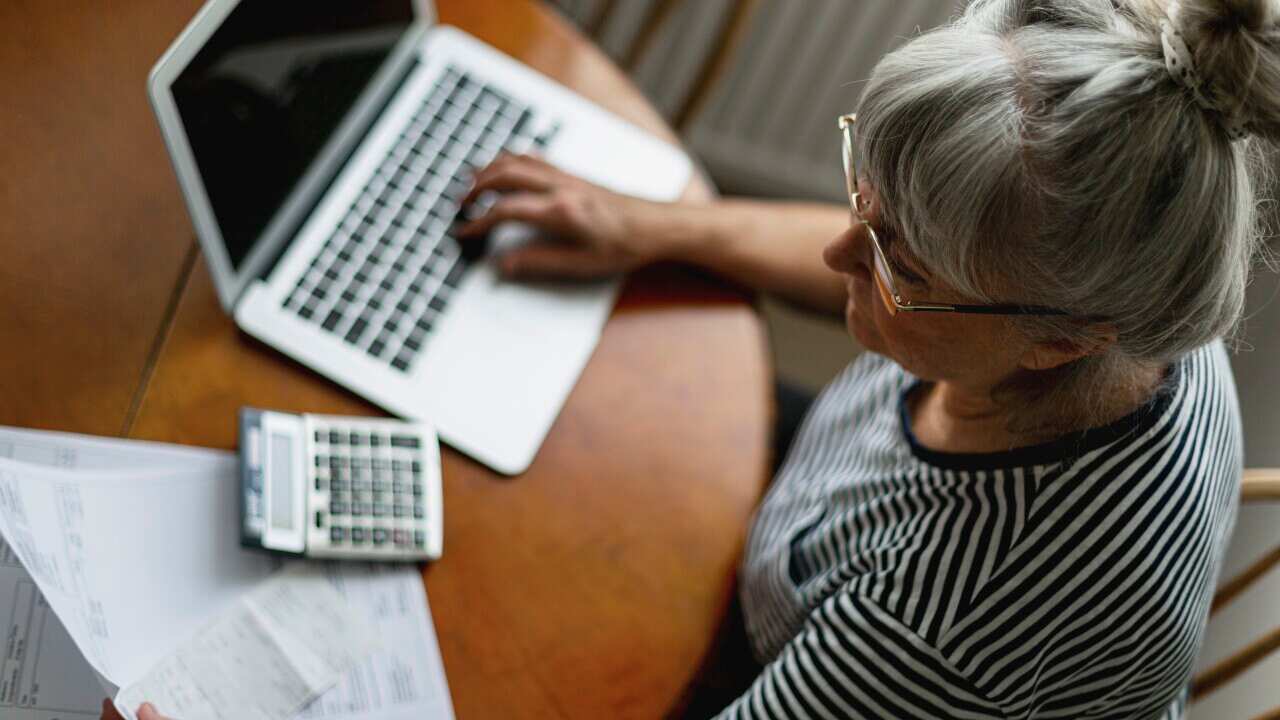Surrounded by others and yet feeling isolated and disconnected... A growing number of people are saying that's how they're experiencing the world.
Professor Ian Hickie is with the Brain and Mind Centre at the University of Sydney.
"There's people in the world going places in which there are people, but they lack significant emotional connection. Reciprocity with other people. They don't feel connected to other people and they don't feel that other people are connected to them. We could have students attending university, walk in, 20,000 people here, and feel they know nobody and nobody cares about them. And they will report that they are very lonely."
Dr Vlasios Brakoulias, Professor of Psychiatry at Western Sydney University, says that although social isolation and loneliness are similar, there are important distinctions.
"Social isolation really refers to being isolated from other people. Whereas loneliness is a bit more of an objective feeling. A feeling of loneliness. A feeling of unpleasantness. Of being by one's self. So yes, it doesn't equate to the same thing."
Dr Anna Kiaos, discipline manager for psychiatry and mental health at the School of Clinical Medicine at the University of New South Wales, adds that it's all a matter of perception.
"Social isolation is an objective measure, whereas loneliness is subjective. In other words, how we tend to feel if we perceive ourselves to be socially isolated. And I don't mean a lack of people around you physically, I mean a lack of meaningful, interpersonal connections where you can talk to people openly, be yourself and have those connections that make you feel supported, valued or loved."
Focusing on social isolation, studies have shown that it mainly affects older communities.
A report by the World Health Organisation showed that about 20 to 34 per cent of people aged 65 and over living in the western world claimed they were feeling socially isolated.
Dr Kiaos explains how that sense of social isolation might come about.
"Social isolation can lead to broader health risks such as adopting unhealthy behaviours. So, if you think about it, if you have people around you that care for you, they will likely encourage you to put your health first, they will likely tell you to eat better, if they can see you're not eating very well, they might tell you to exercise more, or they might encourage you to adhere to your doctor's orders, and so forth. And they will likely also pick up on any changed language or behaviour that might need your attention or the help of professionals. So, having people around you is very, very protective from a physical health point of view. But when you're socially isolated, you are less likely to experience those positive influences that can have long-term implications on your health."
The report by the WHO indicates social isolation in older age groups could lead to greater health risks.
Some of those outcomes could be depression, diabetes, anxiety or dementia.
Professor Hickie explains how the lack of social interaction affects the cognitive processes of the brain.
"So, the way the brain works is by developing new connections every day and responding to the environment. The most complex environments we respond to are the faces and communications of other humans. It's quite complicated to actually interact with others, talk, speak, like we are doing now, respond to their eye movements, their gestures, their body language. And then do that with more than one person, do that in social groups, is even harder than doing it on one-to-one. And your brain develops new connections in relation to that all the time. If you withdraw from that, if you're more isolated, those synaptic connections go down. And the efficiency of your cognitive processes depends on the functioning of those social connections. So, in a kind of use it or lose it kind of way, the more isolated you become, people tend to lose it."
Loneliness, on the other hand, has a completely different definition.
"Loneliness is different because loneliness is a perceptual issue. So, to take the classic example, people often say 'oh, old people must be lonely because they're more isolated!' Actually if you look at surveys of loneliness, older people are not that lonely, even though they're often more isolated. The most lonely group are young people."
According to the Australian Institute of Health and Wellbeing, a growing number of young people say they feel alone.
More specifically, a 2021 survey revealed that one in four young women aged between 19 to 24 agreed with the statement "I feel very lonely."
Olympia Nelson is a 27-year-old who is now studying to acquire her PhD.
She says she's experienced those kind of emotions.
"I remember feeling quite lonely in high school. I had friends but I had all these interests that I felt I couldn't necessarily relate to people around me. So, at the time, again classical music was something I was very interested in, still am, but I just remember feeling a bit nerdy and like I didn't fit in."
Olympia recalls an incident from her high school years that made her feel especially lonely and she says has stayed with her.
"I didn't get invited to parties in high school. People would talk about it around me and I would know full well that I wasn't invited. I remember this one girl saying to someone else. Someone said to her 'hey, are you inviting Olympia?' And she said 'Oh, Olympia's kind of out of the loop.' So this is when I was about sixteen, that has always stuck with me, I'm just a bit out of the loop."
Social media and technology also have a massive influence, especially for younger people.
Dr Kiaos from UNSW explains how social media can make it more challenging for younger people trying to establish meaningful connections.
"Older generations have had the chance to see what it feels like and see the benefits of 100 per cent of their interactions being face-to-face because that is all they had. In other words, I guess older generations are benefitting from social connections which were established prior to the use of mass technology and are now using technology to their advantage by staying connected to those connections more frequently. By contrast, younger generations don't have that luxury of experience to reflect upon how life was like without the use of technology for social connection. And I think this is a real challenge for youngsters because they have to learn to negotiate the appropriate boundaries for themselves."
Professor Ian Hickie says social media has upsides too for younger people.
"Most young people use social media and they use text to be in connection with other people. So in fact and for a lot of groups who have had trouble connecting with each other, who didn't fit in well with their own local community, had communication difficulties or they're gender diverse or (they're) from culturally diverse backgrounds, have actually connected with other people like them, who don't live next door, through social media."
Others, however, say that social media has had a negative impact, and contributed to social isolation and loneliness.
Olympia Nelson says she feels there's an attempt to categorise people based on their preferred social media platform.
"It has a way of pigeon-holeing or putting people into boxes and this whole scrambling to put an identity to someone. So, I think, in some ways, it's made it more difficult to engage with other people."
Ultimately, being alone and unable to socialise for extended periods of time can be detrimental to a person's physical and mental wellbeing.
Dr Brakoulias says people need to challenge their own perceptions regarding loneliness and social isolation.
"From a psychological point of view, you could argue that it is all related to how we think about the world or our cognition and that we should be changing the way we think in order to reduce that feeling of loneliness."













